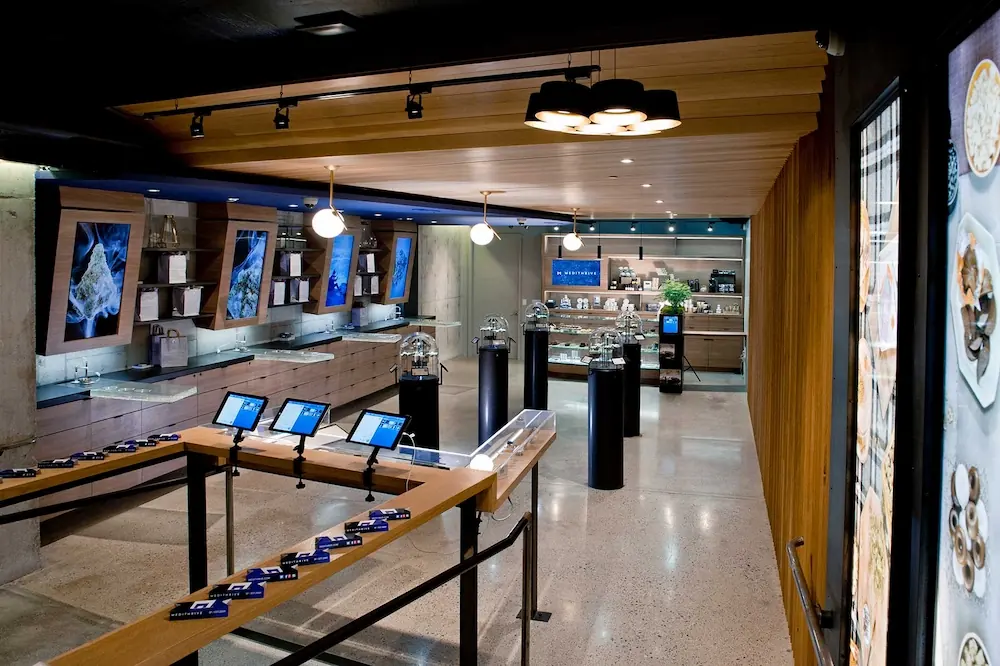When the COVID-19 pandemic began in March 2020, no one could have predicted how much it would change our lives. Separated from friends and family, many people spent their days entirely isolated. But that was only the beginning…
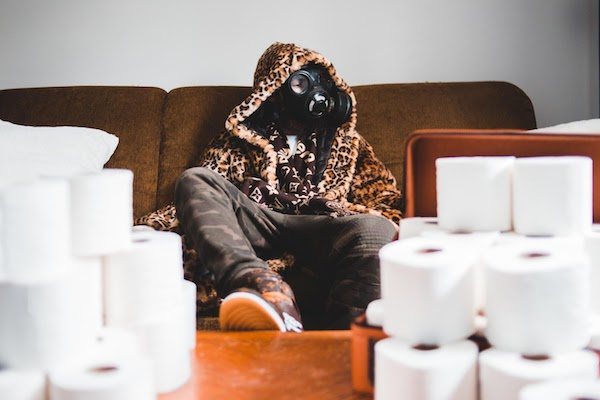
The places and events we found enjoyable—restaurants, bars, public venues, and even sports—shut their doors and locked down. Marriage ceremonies, graduations, birthday celebrations, and holiday get-togethers were canceled. The times we look forward to all year or once in a lifetime were torn away.
Even tragedy was made worse. Wakes and funeral arrangements for deceased relatives were a far cry from the celebrations of life and bereavement that they should have been. Those who lay dying from COVID-19 were and are still forced to spend their last hours without the support of friends or family.
The economic impact of the disease is arguably more devastating nationwide than the health implications. Many of us have dodged the illness, but few have avoided hardship. As governors mandate laws to reduce the spread of the virus, businesses struggle. Some of our favorite establishments are gone forever. Employers lay off millions to save money and unemployment has skyrocketed well above the numbers we saw in the recession of 2006.
COVID-19 has not only threatened our lives but our livelihoods, twisting the knife and leading to personal financial crises for many Americans. Just when we need the support of each other most, we are driven apart by social distancing and self quarantine. Without a shoulder to lean on or cry on, it is no wonder that mental illness is on the rise…
The Connection Between Loneliness and Anxiety
Humans are social creatures who require interaction. Without this connection, our body switches into survival mode, causing our senses to sharpen and get ready to fight or flee. If we were alone in a jungle or forest, we would need those sensitive triggers to stay alive. But the boxes of wood and stone we live within are a far cry from the wilderness our ancestors knew, and the only result is anxiety.
A Vicious Cycle
Our brains are wired to compute that there is safety in numbers and that solitary existence is dangerous. To make matters worse, our sleep becomes lighter. After all, we have to wake up to escape those wolves and lions approaching! As a result, we lose the precious rest that rejuvenates our body and mental health. Loss of good-quality sleep leads to paranoia, irritability, and increased stress, making it difficult to get through the day peacefully and impossible to end it pleasantly. Exhausted and miserable, we sleep each night hoping for a better tomorrow, but the cycle continues.
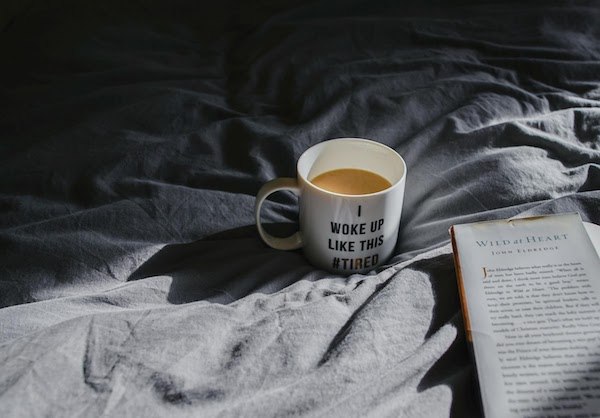
The Solution for Covid-19 Isolation
What can we do to prevent ourselves from spiraling down into mental and emotional mayhem?
1. Socializing
Luckily for us, our body isn’t too smart. It can’t figure out that a person on a screen isn’t in the same room speaking directly to us. Try to talk with friends and family on a regular basis through virtual video chats. Your company benefits just as much as you do.
If you don’t have anyone to talk to on the daily, find a YouTube or TikTok account that makes eye contact with the camera and discusses positive subjects. Play them on a large screen if possible, because tiny people living in your device are not realistic.
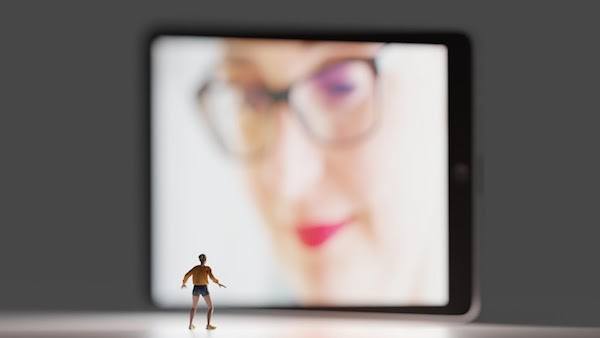
Not quite that large either…
Try to keep the image as true to life as possible. You want to feel like you could reach out and touch them, which brings me to the next factor.
2. Physical Contact
There are chemical reactions we experience with physical touch that we cannot replace artificially. It releases endorphins, which naturally boost our mood and reduce both physical and emotional pain.
If you live alone, pets can be a great substitute to help you cope with isolation. If you cannot keep a cat or dog, there are other options. Birds, chinchillas, guinea pigs, snakes, and rabbits are just a few alternatives to choose from. As long as you feel comfortable cuddling it, and it won’t attack you when you try, it will benefit your mood and relieve stress. This will help to combat your body’s survival instincts, but it might not be enough to offer a peaceful night’s rest. After all, fluffy can’t take on an anaconda hiding in your refrigerator. There is still reason to be on guard, according to your brain, even if you rationalize that you are safe in the comfort of your own home.
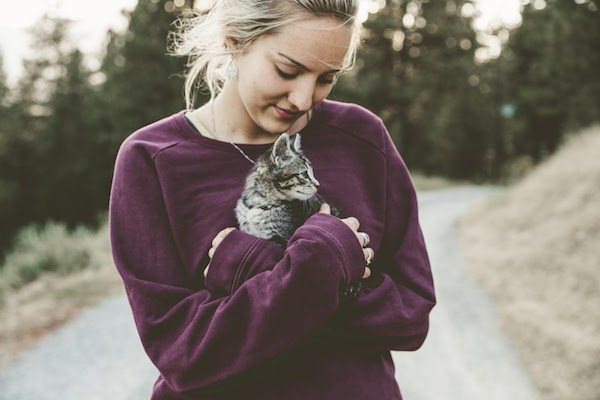
3. Better Sleep
It goes without saying that sleep is a huge factor in our physical and mental health. There are a number of tips you can try to improve your rest.
- Stretch and practice self-massage before bed.
- Eliminate blue light exposure after the sun sets. Install filter software on your devices or purchase a pair of blue light eliminating glasses.
- Consume a natural herbal remedy, such as cannabis.
How to Use Cannabis For Better Sleep During the COvid-19 Pandemic
Here is a short checklist to consider when selecting marijuana for sleep and anxiety.
- The Strain: Indica
- The Form of Consumption: Vape, Smoke, Tea, or Sublingual Tincture
- The Cannabinoids: Less than 20% THC levels
The cannabinoids in your marijuana matter. If you need good rest, you want to have full control over how and when your herb will work. Let’s explore your options.
CBD
If you do not want to feel sleepy but only more relaxed, try a CBD product. CBD helps you to feel more wakeful during the day and relieves stress, pain, and tension to help you fall asleep easier at night. This restores or regulates your sleep cycle, offering a natural alternative to conventional sleep aids that cause drowsiness.
CBN
Another option receiving positive attention on the cannabis market is cannabinol or CBN. When THC is heated, aged, or exposed to oxygen, it becomes CBN. CBN has been shown to be superior as a sleep aid when compared to CBD and THC.
THC
THC makes you sleepy, regulates your breathing rate, and offers a deeper rest. But too much can cause grogginess and a hangover. That is why we suggest that you choose a product with no more than 20% THC and follow the dosage recommended.
When using THC to promote better sleep for chronic sufferers, this study suggests that it’s best to use marijuana on a regular but not daily basis in order to be most effective. Why? The THC responsible for shortening REM cycles may not allow our subconscious mind to work out our daily troubles within our dreams. Taking THC every day deprives us of the dreams necessary for optimum mental and emotional health. We need to give our body a break to experience a full REM cycle and rebalance our mind.

Give your Z’s a better chance at nurturing your body and mind. Better sleep has been connected with an improvement in many chronic mental illnesses and disorders. It also promotes a stronger immune system and supports a positive outlook on life. Ultimately, it’s the key to restoring and maintaining our wellbeing during quarantines and social distancing.
Cannabis is not a replacement for psychological or medical expertise. Please consult a professional about your anxiety, depression, or sleep disruptions and find out if cannabis is the right option for you and your individual needs.
Browse over 75 brands and over 500 products right here at Medithrive! Our knowledgeable and friendly staff can help you to find what you are looking for. Give us a call or send us a message.
- Cacioppo, Ernst, Burleson, et al., Lonely traits and concomitant physiological processes: the MacArthur social neuroscience studies. Int J Psychophysiol 2000, 35:143-154.
- Cacioppo, John T., and William Patrick. Loneliness Human Nature and the Need for Social Connection. Norton, 2009.
- Ferguson, S. and Wilson, PhD, MSN, RN, IBCLC, AHN-BC, CHT, D., 2019. Cannabis As A Sleep Aid: Here’s What You Need To Know. [online] Healthline.
- Walker, Matthew. Why We Sleep: Unlocking the Power of Sleep and Dreams.
1st ed., Scribner, 2017.

